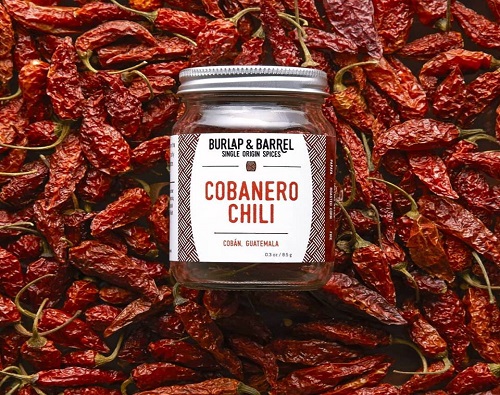Spice supply chains that make life better for everyone involved.
“This is an ancient varietal of coriander seed grown, as it has been for thousands of years, in Denizli, Turkey. It has a savory, herbal flavor, in contrast to our Egyptian White Coriander, which has a lighter, more citrusy flavor.” – says the description for Mediterranean Coriander on the Burlap & Barrel website.
It’s hard to imagine coriander as anything else but coriander-flavour wise. For that matter, it is hard to imagine any spice with a flavour other than what it is known for. My first encounter with these nuances was when I read Marryam H Reshii’s book The Flavour of Spice. I wish I had a more real-life example for this, because coffee with an undertone of pepper I get, but the other way round- I am not so sure. It looks like we don’t have to wait much longer to celebrate spices the way we have begun celebrating other foods like chocolate, wine and coffee. Ethan Frisch founder of Burlap & Barrel Single Origin Spices spoke to me about “rethinking international spice supply chains”, making spices more transparent and a wild cumin that changed the course of his life.
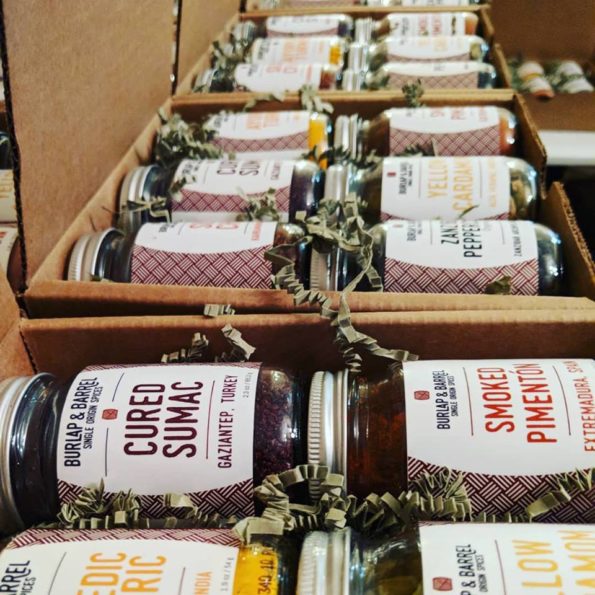
International development meets food
Ethan holds a Masters degree in Violence, Conflict and Development from the School of Oriental and African Studies, University of London. His undergraduate degree is also in Conflict studies along with Education and Social Change. The food aspect, he shared, comes from working as a line cook and a pastry chef in the United States followed by working in a gastro-pub in London during his graduate studies. So how did spices come into this equation?
“After my Master’s degree, I moved to Afghanistan to work for the Agha Khan Foundation. I worked there for about two and a half years, spending a lot of time in rural parts of north-east Afghanistan. I was working on infrastructural projects. We were building mostly schools, as well as roads, hospitals and bridges. I also wound up cooking a lot in Afghanistan. I really enjoyed using ingredients that I hadn’t experienced before, especially this wild cumin that grows in the mountains in north-east Afghanistan. I would bring spices home on trips just to share with my family or my chef-friends and other friends who liked to cook. That was the beginning. Over time I realized if they are so excited about the ingredients why wouldn’t the general public be interested in a clear supply chain which shows them where their spices come from. A chain which gives them a better understanding about the flavor of spices, or varietals that come from different techniques, terroir, soil, and altitudes. They are things we recognize influence flavors in other agricultural products like coffee, wine and tea but for whatever reason hadn’t been extended to the spice trade before.”
Ethan set up Burlap & Barrel in October 2016 to more than just elevate people’s experience of food and spices. By sourcing directly from smallholder farmers across the globe, Burlap & Barrel has created a platform where the farmer’s hard work is appreciated, and they are provided with financial security and sustainable livelihoods.
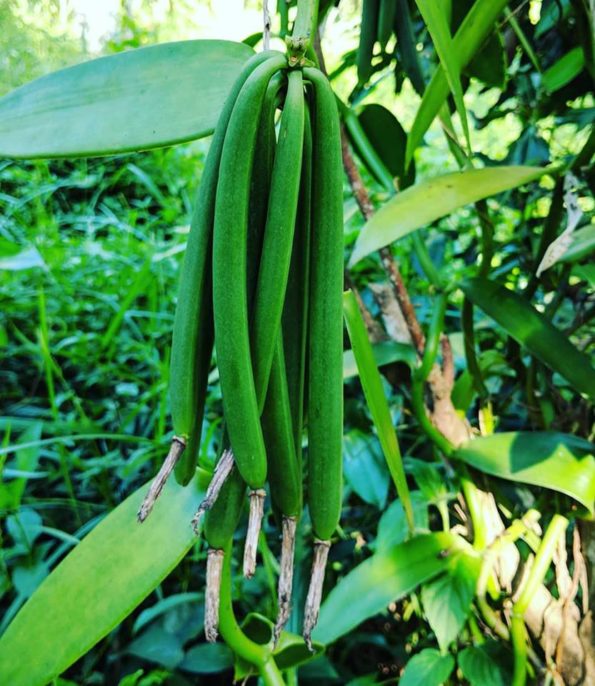
The farms
Burlap & Barrel works with farmers in twelve countries. Their products include the above mentioned wild cumin which grows in the Hind Kush mountain range. They are the only company importing this spice from Afghanistan. They also source a turmeric from Karnataka, India. Ethan talked a little bit about the farms and the issues plaguing spice farmers. “In some cases, the farms we work with are single producers, and in other cases, it is a cooperative. We work with an incredible biodynamic cardamom farm in Guatemala. They are unique in terms of quality and the control they have over the cultivation process. Generally, cardamom is picked slightly underripe to hold that bright green colour. But they have found that when cardamom ripens a little bit longer on the vine the colour changes, so it does not look as beautiful, but it has a richer floral flavour and aroma. We work very closely with a cooperative in Zanzibar in Tanzania, and we are the only company importing anything from Zanzibar at all. The farms there are incredible. They don’t look like farms in the traditional sense. These are farms located in the jungle, and everything is growing more or less wild. There are clove trees, cinnamon trees and vanilla vines growing up the cinnamon trees.”
Beautiful spices, equitably sourced- @burlapandbarrel is on TYT. Click To TweetReading about these farms creates a warm picture about the spice trade, but the ground reality is far from it. Ethan explained that farmers are often the last to know about economic shifts that affect the spice trade and first to be negatively impacted by them. “The volatility of the commodity market is far removed from the farmer growing the spices. It is a huge risk for a farmer. I have heard stories where, say, a farmer in Indonesia had been growing cloves his whole life, and when the clove market tanked and prices went down dramatically, he cut down all his clove trees trying to grow something else.He was worried he wasn’t going to survive the year and support his family.” Burlap & Barrel insulates farmers by paying them upfront and helps them make the right decisions by discussing their economic situation and their yield in a particular year. “We recognize that spice farmers are also small businesses like us; they are entrepreneurs trying something new and sharing the risk between us is important.”
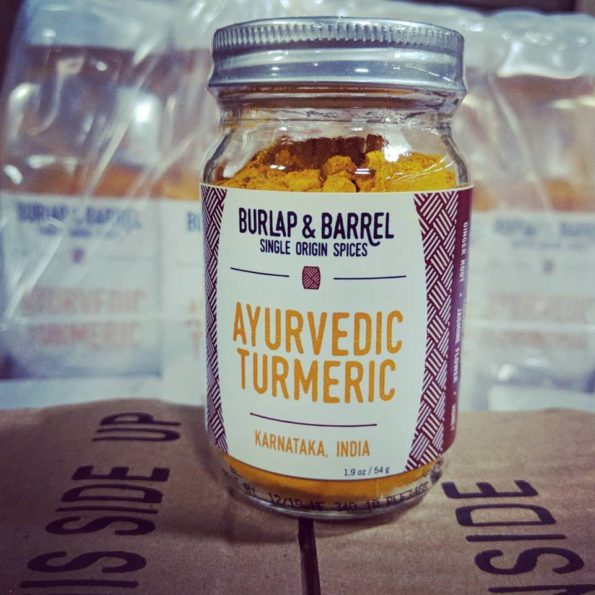
The consumers
Burlap & Barrel delivers across the United States and Canada. They have also had a few orders from Europe. Apart from individual consumers, they work with restaurants, coffee, chocolate and cosmetic companies interested in quality ingredients and sustainable sourcing. They also work with individual spice shops.
In a recent post on Instagram, Ethan shared that they had packed their 10,000th bottle of spice. Ethan adds that Burlap & Barrel has definitely spiced up gifting as many individual consumers come back to their website to buy products for their friends and family. “When we started out we were selling primarily to restaurants, partly because it is my background, and I knew that they did not have time to be diplomatic.Either the spice was incredible, and they wanted to cook with it, or they didn’t. I went door to door, picking a neighbourhood in New York City and walked into every restaurant, doing my pitch and giving them samples and seeing what they thought. The response was tremendous, and people got excited about the flavours, versions of flavours, and a level of freshness that they had never seen before. We slowly built it out to consumers.”
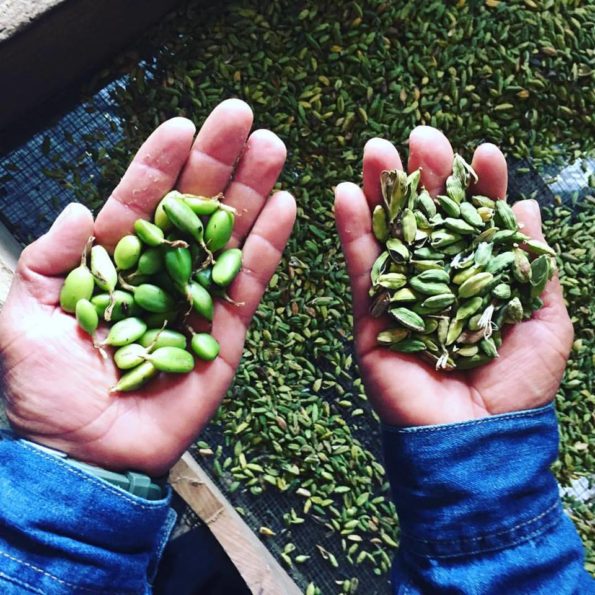
Let’s talk spices
“The conversation between sourcing and sustainability is pretty complicated,” said Ethan when I asked him how important are single origin ingredients in this whole movement towards sustainability. Having personally visited the farms, Ethan talked about how important it is to the understand the source, rather than simply use it as a tool to tout the aspect of sustainability. “You could get a great tomato that was grown a few feet from where you live, or you could get a terrible tomato that was also locally grown. Being able to source something locally does not mean that it is a high-quality product, it does not mean the farmer was paying their staff and their field workers fair wages, and it does not mean they were using responsible agricultural practices.” Single origins, he added, emphasises the source and getting to know the people behind what we eat. Spices for a long time have been left out of this conversation. “People don’t think about it. Spices come from plants. They are fruits, they are seeds and berries, they are leaves and tree barks.”
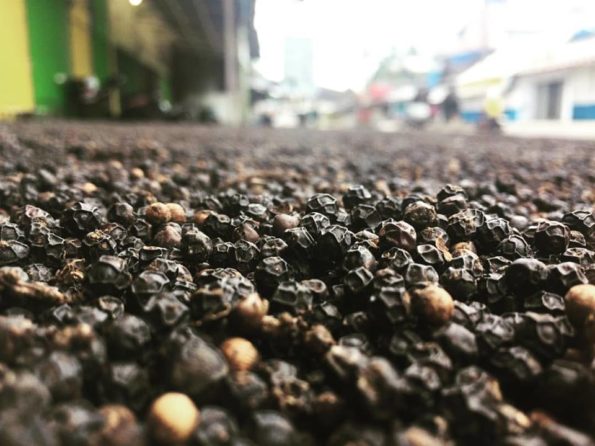
Ethan adds that unlike coffee or wine spices are not consumed on a regular basis in isolation to completely appreciate their differences. “You have black pepper, and it’s mixed with other things, so you don’t have the opportunity to compare multiple black peppers from multiple sources. A big part of the consumer education around it is explaining how black pepper grows and why it’s different if it is grown by farmers using different techniques. When consumers taste a “spicy, lemony black pepper” or a sweeter rounder black pepper, it becomes clear to them. There just hasn’t been an opportunity to do that before.”
Establishing a business which is socially responsible, Ethan says, is a given.“Otherwise, what is the point?” He prefers to call his venture an activist enterprise. “We have pretty specific ideas, we have values, and we have goals that we are aiming for. We want the industry to move towards them. How we do our sourcing is important to us, but also the positions that we take about valuing a farmer’s skill and expertise are equally important to us. People don’t think about who is growing the cardamom, who is picking the cardamom, what is their experience – its a hard job picking 100 kilos of cardamom every day. It requires dedication for the craft that consumers don’t think about.” They will have plenty to think about now.
Great spices, equitably sourced… just like the B&B team writes about their Cured Sumac, all I can say is “Highly Highly Recommended!”
For more information visit https://www.burlapandbarrel.com/
You may also like.
